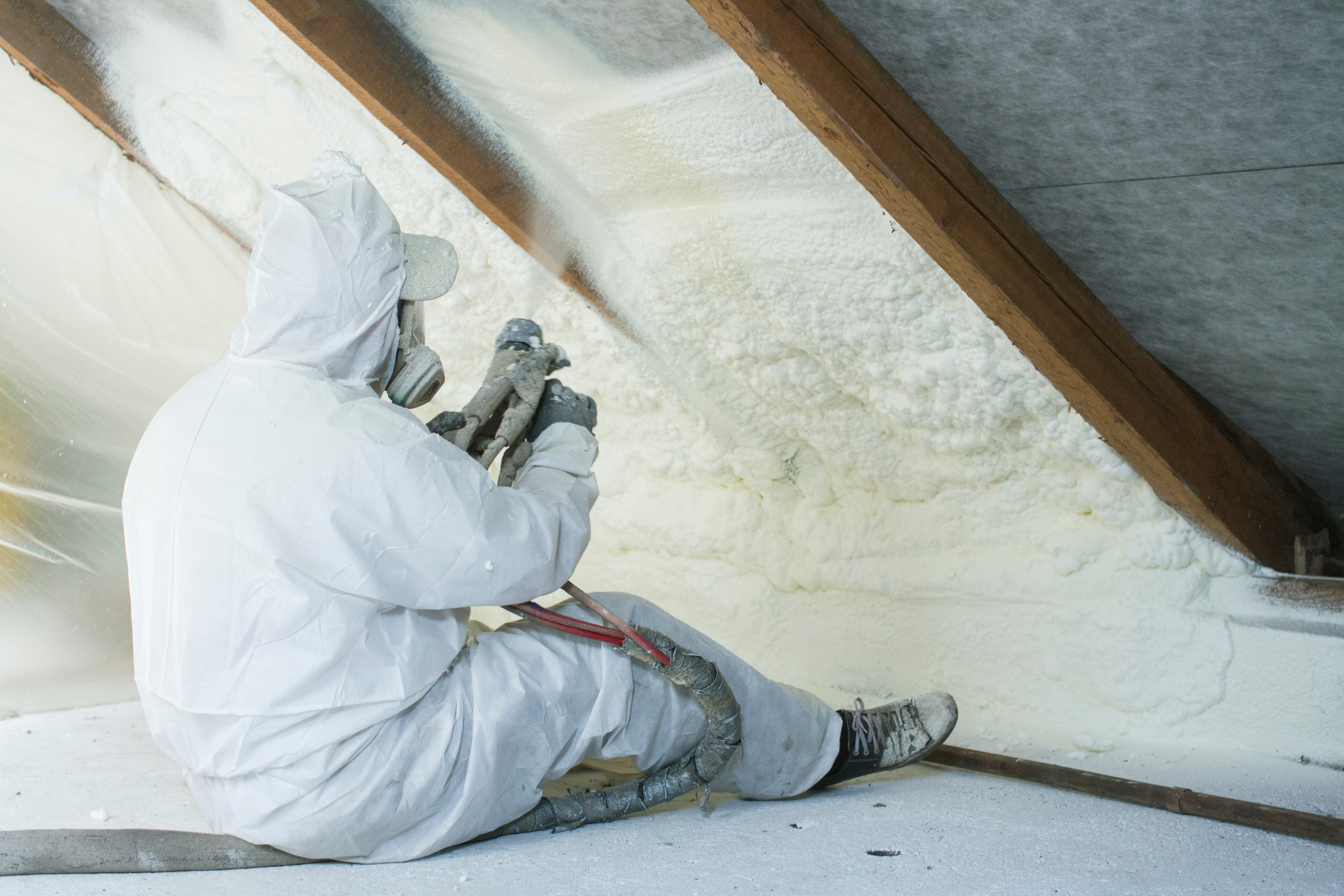Is Air Sealing An Attic Worth It?
Attics Act As A Barrier Between Your Livable Space And The Outside World. So, Is It Worth It To Air Seal An Attic Space?
Attics act as a barrier between your livable space and the outside world. So, is it worth it to air seal an attic space? We'll look at the pros and cons.
Your house should serve as a secure haven where you can kick back and unwind in comfort. But if your HVAC system is constantly running, the temperature in one room does not match the temperature in another room, or if your monthly energy bill skyrockets no matter the season, you should probably think about air sealing your attic.
Is air sealing an attic worth it? The resounding answer is yes; air sealing your home will help you save money and create a healthier environment for you and yours.
What Is Air Sealing?
The biggest ways to save your home energy are right in your attic. With attic sealing, you can stop all major and minor air leaks and help keep your home at the temperature you want. Air sealing an attic can also help prevent dangerous ice dams from forming in the winter.
Attic air sealing could be a good DIY project if your attic is easily accessible, reasonably spacious, and you like taking on larger home improvement projects. If not, you might want to hire a certified attic specialist to do the heavy lifting for you.
Consider some things before air sealing the attic and the rest of your home. When you seal a house, you run the risk of trapping dangerous indoor air pollutants like volatile organic compounds (VOCs), carbon monoxide, and radon which may lead to hazardous situations. To adequately address this issue, it may be necessary to install more ventilation fans to keep the air quality in the house at a safe level and perform repairs to decrease or remove the sources of indoor air pollutants.
Consider contacting a Home Performance Contractor before and after home air sealing to test any appliances that utilize oil or gas to verify they are correctly drawing combustion gasses. In rare situations, sealing might allow naturally venting combustion appliances to back-draft gases into your house, posing a safety risk.
Also, consider hiring a professional to do a radon test and install radon mitigation equipment before house sealing if you live in a high-radon region.
Lastly, asbestos may be present in vermiculite insulation in some attics. Vermiculite is a gray, flaky mineral about the size of a pea. Never disturb vermiculite attic insulation unless it has been tested for asbestos content by an authorized laboratory.
After going through these safety considerations, the next step is to gather all your equipment and materials and proceed with the air sealing process.
A blower door test will show you which parts of your home need sealing. As part of an energy audit, a certified operator will come to your home and use a frame to attach a fan to the outside of your home's door.
The fan pulls air out of your house, lowering the pressure inside. This depressurization can reveal holes, air leakage, and cracks. Based on the results of your energy audit, you should seal the rooms that leak the most.
You can fix most holes in your attic with foam spray sealant, except those around recessed lights and chimneys. In your crawl space and basement, you can also use foam spray, especially around heater vents, dryer vents, HVAC lines, and hose bibs near the foundation or rim joists.
If you run out of foam spray in the attic, you can use caulk in the basement or crawl space. You'll need foam gaskets behind your light switches and outlets to seal the walls inside your home. If you haven't replaced the baseboards, doors, and windows in a while, you can use caulk to fill in the gaps.
Why Do You Need To Air Seal Your Attic?
Let's switch things up a bit and talk about the financial benefits of air sealing first.
A great way to increase your home’s worth is simply by boosting its energy efficiency. When it comes to saving money on electricity costs, buyers are ready to spend about $9,000 more upfront for a new house to save $1,000 a year. As a result, 91 percent of homebuyers choose a more energy-efficient house.
Energy-efficient renovations like air sealing are considered more essential than intelligent thermostats, the most outstanding HVAC systems, and the most efficient appliances. The appeal of your house to potential buyers will be significantly enhanced when you air seal and insulate.
And when you're trying to sell an older house, it's crucial to make sure it's energy-efficient before putting it on the market, especially if you're up against newer properties.
Now, on to more benefits of air sealing an attic.
You can go a long way in keeping your house in good shape by air sealing your attic. In addition to lowering your monthly energy bills, this will help make your home more pleasant to live in in the long run.
Sealing your attic also helps keep soil gas at bay. They are not always harmful, but they may disrupt the air quality in your house.
After a few heavy rain showers, small holes in your roof might lead to substantial attic moisture problems. Mold will undoubtedly develop as a result of the increased moisture.
Pollen, dirt, and other allergens enter via unwanted gaps. Dust rises with warm air that enters your home in the summer. Air sealing will save you from daily feather-dusting and vacuuming. Sealing attic gaps improves air quality. It also improves allergy symptoms, particularly for patients with asthma or other respiratory issues.
Nothing beats home comfort. If your attic leaks air, you'll be uncomfortable. In the summer, a permeable attic will let in more heat. When the attic air seal is not adequate, heated air may enter the living room (heat gain) and exit the living space (heat loss) during the warm and cold months. If you have a well-sealed attic, you won't have to turn up your heating and cooling systems as much.
You may need to use the A/C or heating depending on the season. This energy use adds up. Some U.S. homes spend 70% of their summer power bill on air conditioning.
You can fix any apparent holes and stop adjusting your A/C or heater every day when you decide to air seal. Air sealing your attic helps keep your home's temperature stable. You won't feel like crossing the Sahara walking in and out of your bedroom.
How Much Does Air Sealing An Attic Cost?
Air sealing a house costs $1,000 to $4,000.
How Much Can You Save In Air Sealing Your Attic?
The initial expense of air sealing and insulation may put off some homeowners. These services, on the other hand, pay for themselves over time. According to the EPA, homeowners lose an estimated 25-30% of a home's conditioned warm and cold air via attic air leaks. Addressing air leaks may save you up to $200 per year on heating and cooling expenses, depending on the size of your house.
Attic sealing costs start at $1,000, and you'll get a 20% return on your investment every year. See air seal costs as an investment. This investment will pay for itself in the long run because of the money you save on your utility costs.
So, Is Sealing An Attic Worth It?
If you're not comfortable taking on an air sealing project yourself, many certified attic specialists can help you get the job done. The Environmental Protection Agency recommends sealing the attic before insulation. Using these strategies together will make your house even more comfortable, energy-efficient, and environmentally friendly.

